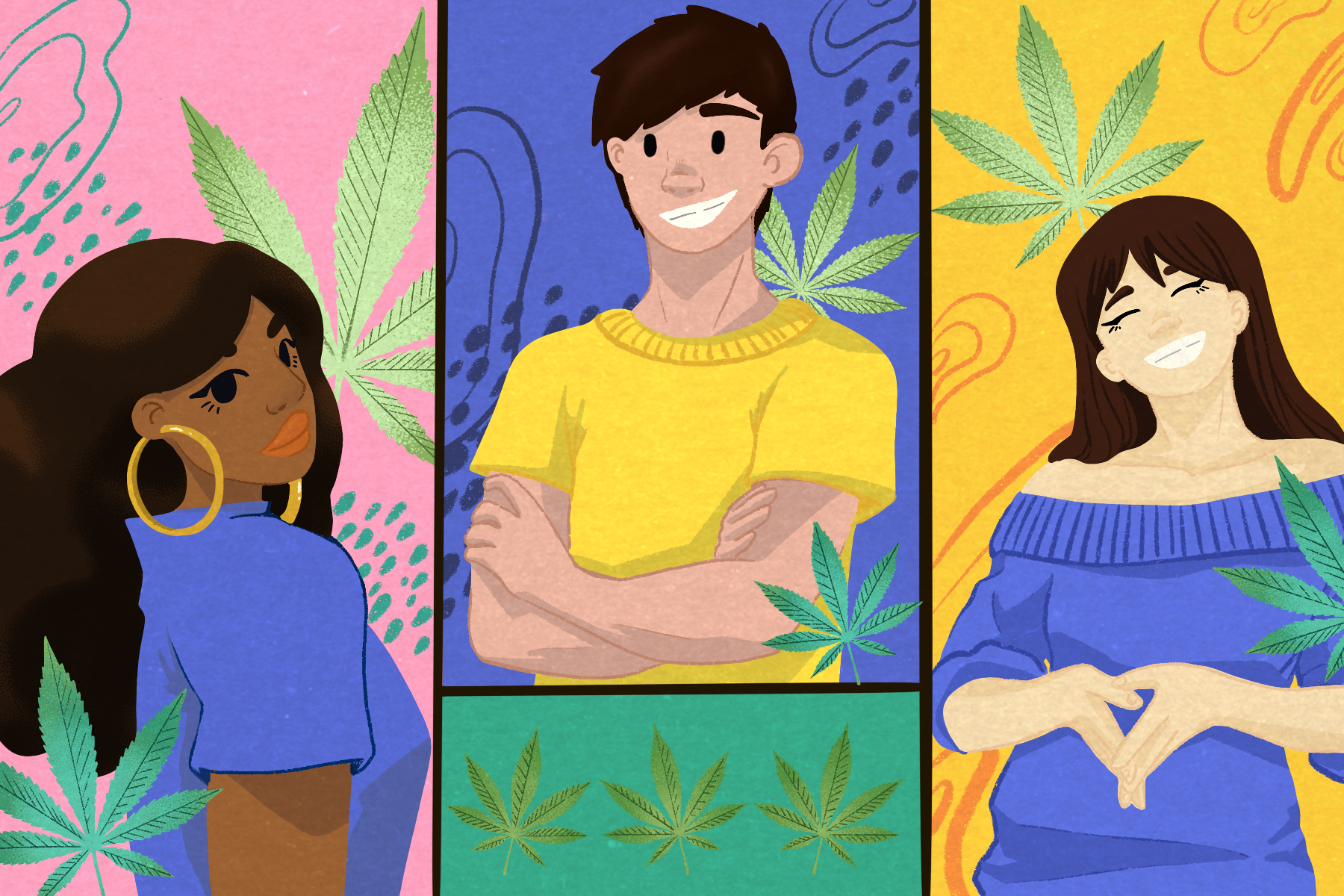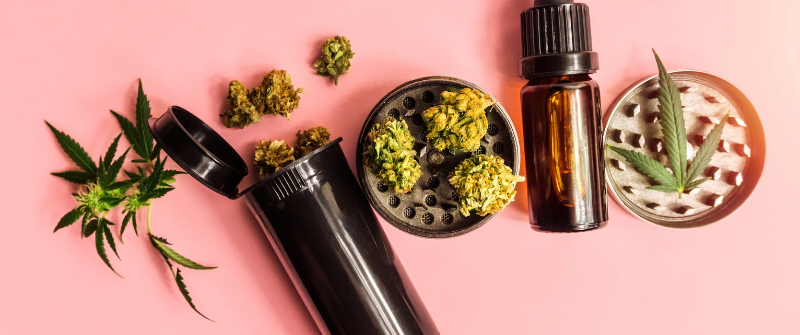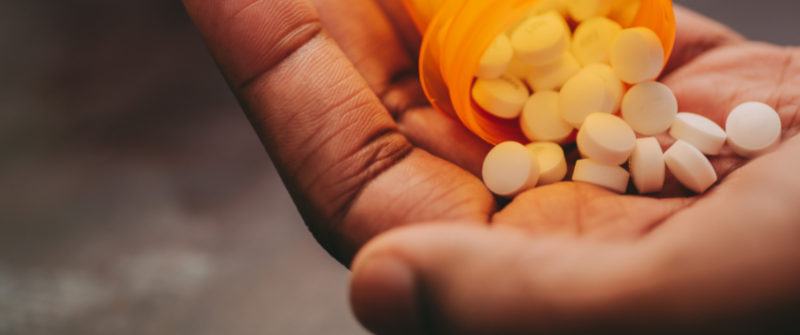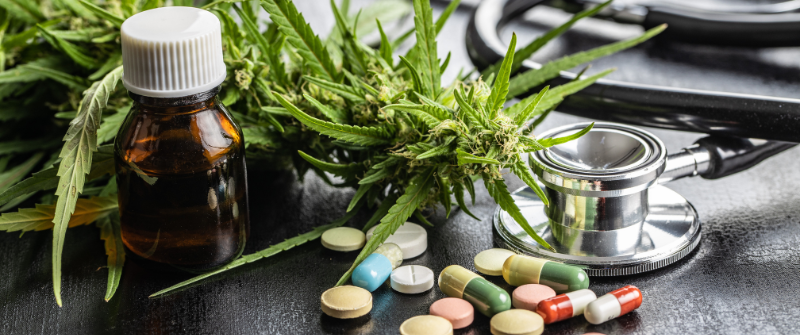
Opioid, narcotic, and alcohol abuse are one of the biggest problems facing Americans today. According to the CDC, over 930,000 people have died of a drug overdose since 1999. More than 80 percent of those deaths were caused by opioid misuse.
Alcohol abuse is also a significant concern for millions. It’s estimated that excessive alcohol use kills over 140,000 people every year. That’s the equivalent of approximately 380 people per day. These sobering statistics are just the tip of the iceberg. Of the hundreds of thousands who lose their lives to opioid and substance abuse, millions more struggle with addiction daily.
For years, the connection between opioid, narcotic, and alcohol abuse was blurred by stereotypes, personal and professional biases, and a lack of resources. Now that there is more awareness of the addictive nature of these substances and the miraculous yet therapeutic effects of marijuana, researchers are finally ready to discover how beneficial cannabis is for substance abuse disorders.
If you or someone close to you is struggling with substance addiction, you might wonder if cannabis can give opioid, narcotics, and alcohol users a second chance. Continue reading to learn the answer to this and more.
Now that there’s more interest in medical cannabis for substance abuse issues, including opioid use, narcotic use, and alcohol abuse, many are wondering how it works and what are the benefits. Before going into further detail, let’s take a closer look at cannabis.
Marijuana has cannabinoids and terpenes that bind to receptors in the endocannabinoid system. These same cannabinoids trigger various mental and physiological responses. Just as your body already makes neurotransmitters and hormones that impact inflammation, pain, and numerous other systemic processes, medical cannabis use causes similar effects.
Medical cannabis improves mood, sleep, memory, and appetite. Many cannabis users use it for mental health issues, sleep concerns, and chronic pain relief. Of course, these effects are highly influenced by the strain of marijuana used. Individual experience does vary.
Furthermore, everyone has different responses to different substances and medications. That is why it is crucial to meet with a doctor before trying medical cannabis for the first time or using it while on big-pharma meds.
Even for people who already suffer from substance abuse and addiction issues, particularly those involving drugs and alcohol, medical cannabis can be useful and improve your quality of life.

According to information published by Harvard Health, several significant benefits of medical cannabis have already been proven, with many more yet to be discovered. Some of the most common uses of medical cannabis include:
On the surface, the above medical concerns may not seem like they are related to narcotic, opioid, and alcohol abuse, but they are. Many people who suffer from these conditions must rely on manufactured medications that are not always as effective or well tolerated as advertised. As a result, many continue to take prescription medications or stop using them and resort to unhealthy substances like alcohol, hard narcotics, and prescription opioids to manage their symptoms.
Among the most abused drugs linked to substance abuse and overdose deaths² are the following:
These drugs are Schedule II substances which means they have high abuse potential. Even users not at risk of over-dependence are vulnerable to addiction when using them.
Alcohol is another harmful substance that, like opioids, many street drugs, and conventional prescription medications used for pain, has elevated abuse potential. The dangers of alcohol, opioid, and narcotic use are well documented. Still, these substances are legal and sold everywhere in stores, restaurants, bars, and establishments.

Both cannabis and alcohol are considered gateway drugs, meaning that users incur the risk of tolerance and addiction with each use. However, only one of these substances has been repeatedly proven to be toxic and harmful to consumers’ health, function, and behaviors.
According to the National Institute on Alcohol Abuse and Alcoholism (NIAAA), 1 out of every 14 men, 25 women, and 60 adolescents meet the Diagnostic and Statistical Manual of Mental Disorders (DSM-5) clinical criteria for alcohol use disorder.
Although there are many arguments and mounting evidence as to why alcoholic substances should be banned, many of the negative consequences of marijuana are due to stereotypes, biases, and propaganda. Out of the numerous studies done on the toxic and harmful effects of alcohol on the body, the positive effects of use have yet to be discovered.
On the other hand, there’s no shortage of claims and clinical research on the toxic effects of cannabis. As researchers look for treatment alternatives to many addictive medications, new evidence is slowly emerging every day about the positive impact of marijuana on various medical and mental health disorders.
Traditionally, substance misuse has been misclassified as a societal problem largely influenced by criminality. Resources for prevention and treatment were and continue to be sorely lacking. Despite the intricate connections between mental and physical health and well-being, the healthcare system has largely ignored the problems faced by those with substance abuse disorders by not providing coverage or resources for treatment until now.
Now that there’s more evidence on the impact of prevention, treatment, and recovery, the medical, mental, and healthcare communities are changing their tune and implementing reform to provide more quality resources and increase access to reduce the risk of health and dependency disparities, the overall toll on society.
To help combat opioid use disorder, mental health and addiction specialists prescribe certain medications known as opioid agonists. The two most commonly used opioids used to combat abuse disorders are methadone and buprenorphine.
Agonists interact with the receptors in the brain that are activated with drug abuse. Unlike most opioids, agonists don’t contribute to behaviors associated with misuse. They reduce cravings and withdrawal symptoms to help the user gain more control over their condition as they progress through recovery.
Despite their effectiveness in alleviating symptoms and helping those afflicted recover, sadly, they are not widely available. Also, only one opioid antagonist is approved and available for substance misuse disorder—naltrexone.

Opioids are used for a variety of medical purposes, including addiction treatment. Those used for opioid use disorder withdrawal and addiction recovery are also referred to as MOUD. These medications act similarly to other opioid-based drugs, but when taken by a substance misuser, they cause cross-tolerance³.
Cross tolerance is necessary to allow users to substitute their tolerance for the toxic, abused substance to reduce their cravings, dependency, and vulnerability during withdrawal and helps prevent relapse.
Conventional addiction treatment uses MOUDS to help prevent dangerous opioid addictions because they are safer and long-acting, so fewer doses are necessary to avert deviant behaviors, and improve overall health and function. The two most widely used medicines for opioid use disorder are methadone and buprenorphine.
Methadone is an opioid agonist that binds with opioid receptors in the brain to prevent withdrawal symptoms and cravings. Despite its high efficacy for opioid misuse disorders, there are risks, such as abnormal cardiac activity, addiction, and overdose. These concerns are exacerbated when the drug is combined with other medications, including benzodiazepine, another opiate-based drug widely used to treat addiction.
Methadone is a long-acting narcotic that builds up inside the body, increasing the risk of dangerous and possibly fatal reactions with prolonged use. Medical supervision is necessary for patients to prevent tolerance and lethal conditions.
Buprenorphine is often provided for substance abusers at the beginning and last phases of withdrawal. The medication is normally used to treat postoperative and pain management patients. Buprenorphine is also an agonist, but its effects are much weaker at stimulating brain activity— the likelihood of an overdose is much lower than alternative MOUD.
This effect is clinically referred to as a “ceiling effect.” The ceiling effects occur when the medication is taken orally.
Buprenorphine is widely used to treat substance abuse disorders due to its long-acting and stable effects on the brain. As it binds with the opioid receptors in the body, it prevents the activity of other opioids, so users do not experience any noticeable effects.
Buprenorphine, when used as a standalone treatment, is Subutex. When combined with other opioids, like naloxone, it is Suboxone. There are also different, less commonly used formulations.
As beneficial as buprenorphine is for some patients struggling with substance abuse withdrawal, treatment can be fatal for some. This particular MUOD can cause serious and fatal drug interactions when combined with certain medications, including Ativan, Valium, Xanax, Klonopin, Ativan, and Halcion.
These medications are benzodiazepines and are commonly provided to substance abuse patients to counteract the mental health symptoms like depression and anxiety that many experience on their path to recovery.

Now, for people suffering from opioid, narcotic, or alcohol addiction, medical cannabis could be a viable treatment option. Some studies suggest that prescribing medical cannabis for symptom management instead of conventional medications for opioid use disorder can be beneficial in preventing opioid and alcohol abuse disorder in those with diagnosed and underlying medical and mental conditions and those at risk of tolerance and dependency issues.
Cannabis can help people who usually rely on opioids, alcohol, and other narcotics for symptom management reduce their use and dependency on these substances. Furthermore, medical marijuana can be used as an effective harm-reduction treatment for those at risk or suffering from addiction.
Not everyone who suffers from opioid, narcotic, and alcohol abuse is ready for abstinence. As a harm reduction measure, it is possible to replace alcohol, opioids, and narcotics with medical cannabis to eliminate unhealthy cravings and urges. As patients decrease their use of drugs and alcohol, they can either continue taking medical marijuana for maintenance or, if they desire, stop using it completely.
In addition, there is evidence that medical cannabis can help people reverse brain changes stemming from drug use. For example, one study indicated that cannabidiol or CBD, one of the main substances in medical cannabis, can reverse the harmful effects of illegal and misused substances⁵, like alcohol, opioids, and heroin.
Even though there are possible complications and side effects of medical cannabis, these effects pale in comparison to the alternatives for withdrawal and recovery. Also, some individuals cannot experience the full effects of withdrawal treatment with more conventional treatment measures or have difficulty getting sober any other way, making medical cannabis a more suitable alternative.
Medical cannabis has the potential to help people who suffer from substance abuse issues. Even though this is something that is still being actively explored, it could be an affordable, safe option for people to work their way toward sobriety.
It is critical for anyone interested in using medical cannabis to help them with substance abuse and alcohol use concerns to seek out professional help from a pro-cannabis-mental health, substance abuse counselor, or provider to help them get started on their path to recovery.
_________________________________________________
No Information on MarijuanaDoctors.Com should be used to diagnose, treat, prevent or cure any disease or condition. You can view our Full Disclaimer here.